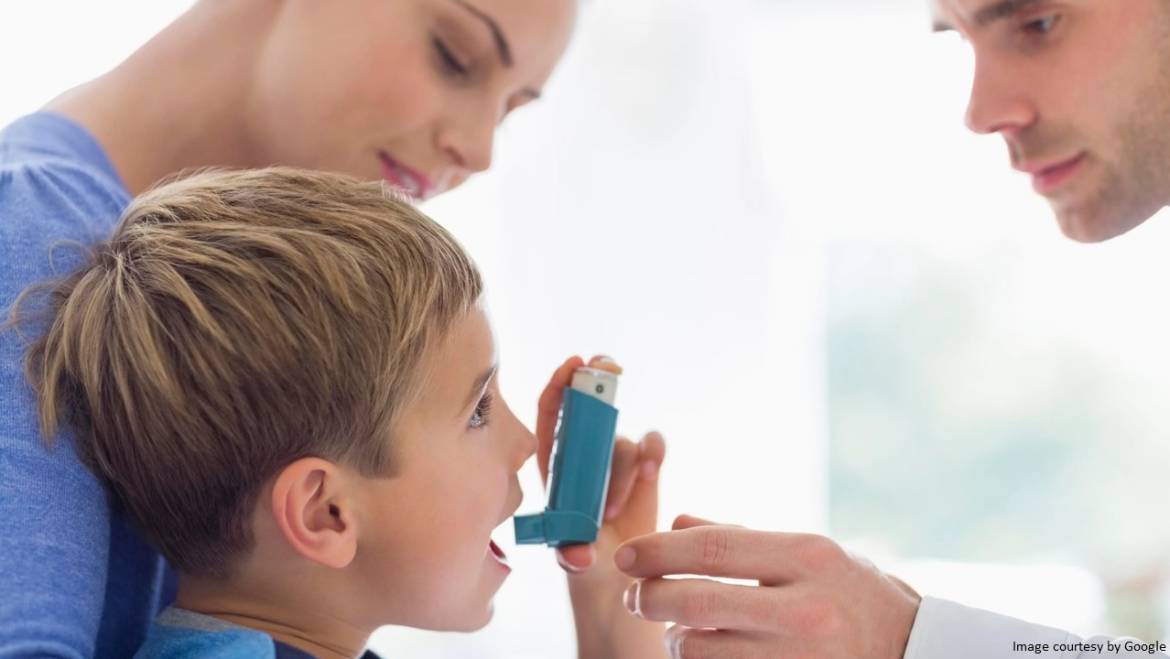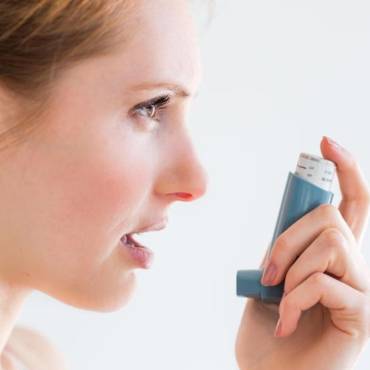Parents play an important role in helping their children control asthma signs and symptoms. This blog carries important tips that a parent should know.
Diagnosing asthma in children can be a stressful situation for parents as they may fear their child will not be able to live a normal life and may wonder how they will handle it if their child experiences an asthma attack. The key to coping is to be as aware as possible of the condition and how to control it.
People with asthma tend to have sensitive airways. When they are exposed to certain triggers such as colds and flu, cigarette smoke, animal hair, exercise, animal hair, and dust mites, their airways become narrow, making it hard for them to breathe.
Although the commonly reported asthma sign is wheezing, other symptoms may include a cough, which usually worsens at night or after exercise, chest tightness, and breathing problems. If a child coughs during the night, either regularly or with a cold, you should see a health care provider.
Childhood asthma treatment and medication keep asthma at bay, and children with asthma can live a normal life if their asthma is controlled.
Asthma Causes
Asthma causes aren’t fully understood. Some factors thought to be involved include the following:
-
- A tendency to develop an asthma allergy that runs in the family
- Parents with asthma
- Certain airway infections in the lungs occur at a very young age.
- Exposure to certain environmental factors, including smoke or other air pollution.
When exposed to certain triggers, patients with immune system sensitivity develop swelling of the airways in the lungs and mucus production. Reaction to a trigger makes it more tough to identify the trigger. Triggers usually vary from one child to another and can include:
-
- Viral infections, including the common cold
- Physical activity
- Allergies to pet dander, dust mites, pollen, or mold
- Exposure to air pollutants, such as tobacco smoke
- Weather changes or cold air
- Physical activity
Common asthma signs include a whistling or wheezing sound, shortness of breath, and chest tightness/congestion. Asthma causes and treatment are often associated, as treatment usually depends on the condition’s cause.
Taking control of childhood asthma
Asthma can be well-controlled with medication and by avoiding the triggers that induce attacks. Medicinal treatment includes daily preventive medication to make airways less sensitive and reliever medicines that make breathing easier when the child has symptoms.
Your child’s healthcare professional will provide a written action plan for managing asthma at home. This should include what asthma medicine is required for controlling asthma symptoms, how to recognize worsening asthma symptoms, and what to do during an attack. If your child is dealing with exercise-induced asthma, speak to your healthcare professional about how to manage this.
Make sure the child’s school is asthma-friendly. Many schools are well prepared to deal with children with asthma.
Cigarette smoke can affect asthma
Parents who smoke should avoid smoking near babies and children. Besides triggering asthma attacks in some children, cigarette smoke can also maximize the risk of developing asthma.
Aware of the symptoms
Asthma is a condition that may cause your child to wheeze and breathing issues. Asthma is also referred to as acute bronchospasm or reactive airway disease. Some healthcare providers may not want to diagnose a child with asthma.
Know your child’s triggers and how to avoid them.
Triggers may make your child’s asthma symptoms worse. Every child with asthma tends to have different triggers. Some common triggers are cold or flu, pet dander, cigarette smoke, high ozone levels, exercise, pollen, mold, or dust mites.
To help your child with asthma, avoid asthma, have him:
-
- Stay inside when the pollen count is high
- Stay away from smoke and clothes that smell like smoke
- Sneeze into his short sleeves
- Rinse his hands throughout the day.
Make sure the child is carrying an inhaler.
If your child has asthma, his healthcare provider recommends a rescue inhaler such as Albuterol for asthma relief. An inhaler has medicine that allows your child to breathe easily. Your child will need his rescue inhaler when he has an asthma flare-up or asthma attack.
Ensure your child always carries his inhaler at home, school, and anytime he is away.
-
- He needs the rescue inhaler for asthma attacks.
- Have your kid use a spacer with the inhaler so the medication gets into his lungs, not his mouth.
- The sooner the rescue drug is used, the better it will work.
- Keep refilling his medicine on time so he always has medicine in case of an asthma attack.
Asthma is a serious respiratory condition that requires medical attention.
Parents can’t manage asthma alone. If your child suffers from breathing issues, he requires the right care. Asthma management requires expert advice. A healthcare provider can monitor your child’s symptoms and change the treatment plan.
Symptoms your child requires a new asthma treatment plan:
-
- He uses a rescue inhaler more than twice daily in one month.
- He requires oral steroids.
- He requires urgent medical attention more than three times a year.
Know when to take your kid to the emergency department.
The health care professionals are trained to treat children having serious asthma attacks. Your child requires immediate medical help when in case:
-
- His rescue asthma medicine is not effective enough to relieve his breathing.
- He requires his rescue medicine more than every four hours for asthma control.
The bottom line!
Asthma can be well controlled with medicines and by avoiding triggers that induce an asthma attack. An asthma treatment plan includes daily preventive medication to make airways less sensitive and reliever medicine that allows your child to breathe easily when the child has symptoms.
Also Read: Asthma in Children: Signs, Symptoms, and Treatment
admin
Latest posts by admin (see all)
- What is Triluma Cream? Uses, Benefits, and How It Works for Skin - December 26, 2024
- What Causes Dark Spots? Understanding the Science of Hyperpigmentation and How Skin Lightening Products Help - December 26, 2024
- Tretinoin Gel vs. Cream: Which Formulation is Right for Your Skin? - December 20, 2024




